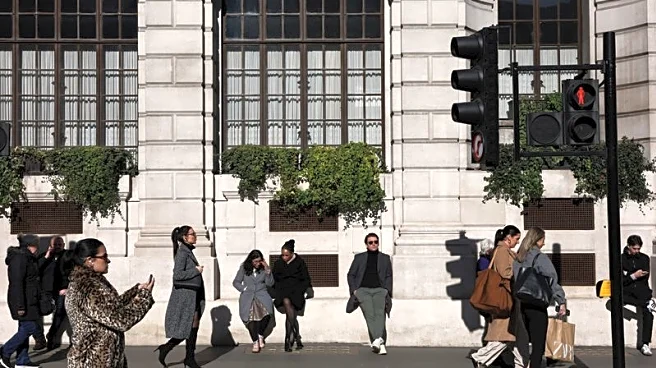By David Milliken
LONDON (Reuters) -British employers offered the lowest pay settlements in more than three-and-a-half years in July and hiring continued to slow - albeit by less than in previous months
- according to surveys of employers and recruiters released on Monday.
The figures are likely to reassure some Bank of England policymakers that an upsurge in inflation will prove temporary but also highlight businesses' fears of another round of tax rises in finance minister Rachel Reeves' November 26 budget.
Incomes Data Research said that the median pay settlement in the three months to July dropped to 3.0% from 3.4% in the three months to June, its lowest since December 2021.
Only 9% of employers offered pay rises of 4% or more, compared with 39% in June - though IDR cautioned that July was a month with relatively few pay awards. The data was based on 32 awards covering just under 700,000 workers.
Data last week from the BoE's Decision Maker Panel survey showed that businesses reported raising wages by an annual 4.7% in the three months to July and expected pay rises of 3.6% in the year ahead.
The BoE forecasts inflation will reach 4% in September and sees pay growth of close to 3% as needed to get inflation back to its 2% target.
The Recruitment and Employment Confederation said in a report on Monday that starting salaries for permanent jobs rose by the smallest amount in four-and-a-half years
Hiring slowed further - though by the smallest amount in three months - and the number of job candidates rose by the most since November 2020 due to redundancies and job security fears.
"All eyes are now on the Autumn Budget, in hope now that the Chancellor won't do any further damage to the labour market with costs on hiring," REC Chief Executive Neil Carberry said.
Britain's Labour government shocked many businesses by making a 25-billion-pound increase in employers' social security contributions the centrepiece of tax rises in its first budget in October 2024.
Higher borrowing costs and a failure to pass welfare cuts mean many economists think Reeves will need to raise tens of billions of pounds more in November.
(Reporting by David Milliken, Editing by Paul Sandle)









